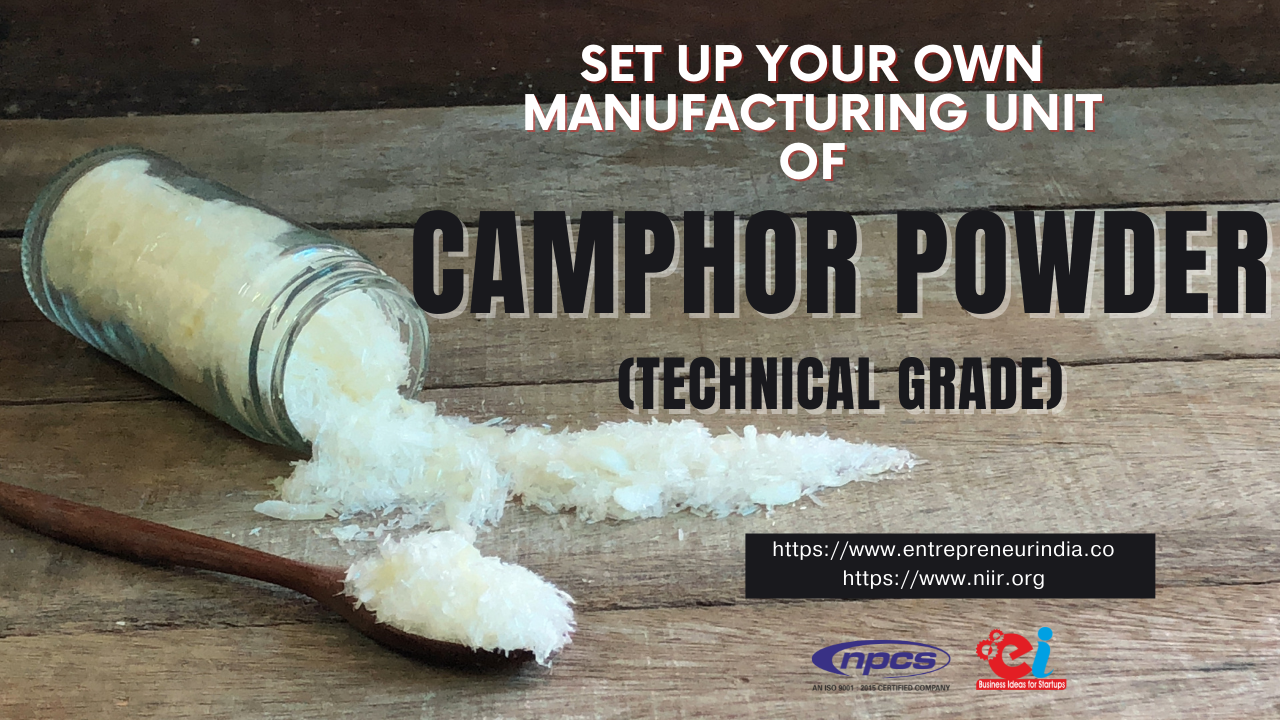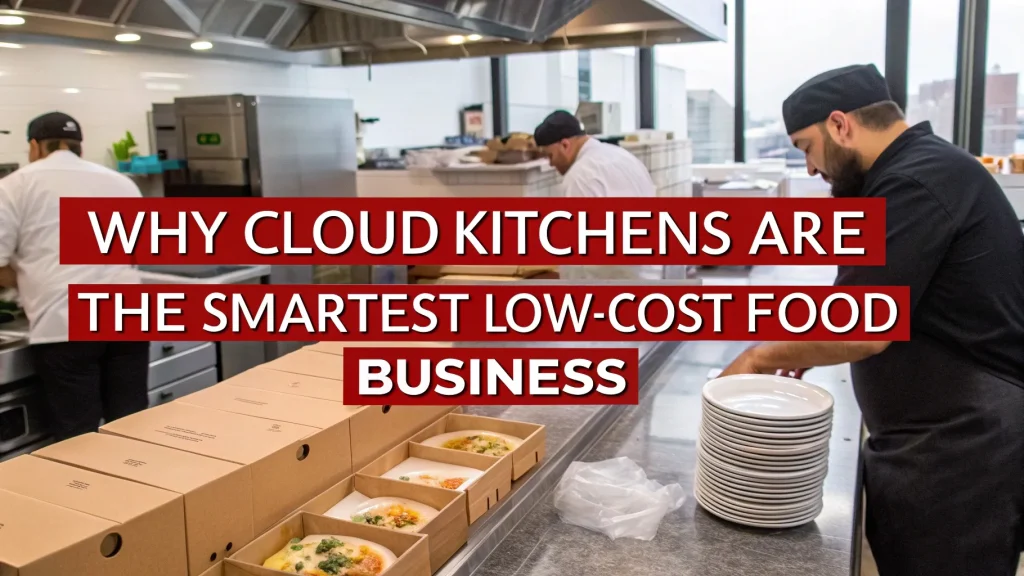Setting up a manufacturing unit of camphor powder can be a highly profitable venture, especially in a country like India where camphor holds deep cultural, religious, and industrial importance. Camphor powder is derived from camphor crystals and is widely used in the production of incense, pooja items, ayurvedic medicines, balms, mosquito repellents, and other household products. With growing awareness about organic and natural products, the demand for camphor is steadily increasing across domestic and international markets, making this a promising business opportunity for new-age entrepreneurs.
Market Demand and Business Scope
The use of camphor is not limited to religious rituals. In modern industries, it plays a key role in pharmaceuticals, cosmetics, and even agrochemical formulations. The demand for camphor powder is rising, driven by consumer preferences for herbal and ayurvedic solutions over synthetic alternatives. When you establish a manufacturing unit of camphor powder, you’re entering a market that is both culturally rooted and industrially scalable.
In India, camphor is in constant demand by temple suppliers, pooja stores, Ayurvedic product manufacturers, and even spiritual wellness brands. Internationally, countries like the UAE, Malaysia, Indonesia, and the USA import camphor-based products in large quantities. With the right certifications and packaging standards, export can open new revenue streams for your business.
Business Plan: Camphor Powder (Technical Grade) Making Business
Raw Materials and Production Process
The primary raw material for the manufacturing unit of camphor powder is refined camphor crystals. These are typically derived from turpentine oil through a distillation and crystallization process. If you’re setting up only a powder manufacturing plant (and not producing the crystals), you can directly source bulk camphor blocks or tablets from certified suppliers and focus on grinding, filtering, and packaging them into fine powder.
The process includes:
-
Sourcing high-grade camphor blocks or tablets
-
Crushing and grinding them into uniform powder
-
Filtering for purity and particle size consistency
-
Adding optional ingredients like menthol (if applicable)
-
Packaging in air-tight, tamper-proof containers
Since camphor is volatile and flammable, the entire production process must be conducted in a controlled environment with safety measures in place. Proper ventilation, flame-proof equipment, and dust collection systems are essential for worker safety.
Visit this Page for More Information: Start a Business in Chemical Industry Projects
Equipment and Factory Setup
To establish a successful manufacturing unit of camphor powder, you need machinery that ensures consistency, efficiency, and safety. The basic setup includes:
-
Camphor grinder or pulverizer
-
Sieve shaker (for uniform particle size)
-
Air filtration and ventilation system
-
Dust collector and spark arrestors
-
Weighing, filling, and sealing machines
-
Labeling machine and batch coding printer
-
Fire extinguishers and flame-proof electrical fittings
A small-scale unit can be set up in 500–800 sq. ft. with basic utilities like power supply, exhaust system, water for cleaning, and storage area for raw materials and finished goods. The machinery investment for a basic unit starts around ?7–10 lakhs, while a semi-automated line with higher capacity may cost ?15–20 lakhs.
Read Similar Articles: Chemical Industry
Legal Requirements and Safety Norms
Since camphor is a flammable substance, compliance with safety and environmental regulations is essential when setting up a manufacturing unit of camphor powder. You will need the following licenses and approvals:
-
Udyam (MSME) registration
-
GST registration
-
Factory license from local authorities
-
Fire Safety NOC
-
Pollution Control Board NOC
-
Drug License (if used in pharmaceutical or Ayurvedic products)
-
Trademark registration (for brand protection)
It’s also advisable to install flame detectors, fire-resistant flooring, and spark-proof motor systems in the production area. Adequate PPE (gloves, masks, goggles) should be provided to all workers handling raw camphor powder to minimize health hazards.
Read our Books Here: Chemical Technology (Organic, Inorganic, Industrial), Fine Chemicals
Packaging and Branding Strategy
In the camphor industry, packaging plays a key role in product appeal, safety, and shelf life. The volatile nature of camphor requires packaging that is both airtight and leak-proof to avoid evaporation and maintain aroma and potency. You can offer the product in:
-
Plastic or HDPE containers with screw caps
-
Laminated pouches with zipper locks
-
Glass jars (for premium variants)
-
Refill packs for institutional buyers
Branding should emphasize purity, religious authenticity, and natural formulation. Clear labelling about intended use—whether for pooja, medicinal, or aromatic use—helps in targeting the right customer base. A strong local and online presence via platforms like IndiaMART, Amazon, Flipkart, and your own D2C website can rapidly boost market penetration.
Cost and Profit Estimation
The total investment for a basic manufacturing unit of camphor powder can range from ?10 lakhs to ?20 lakhs depending on scale and automation. A breakdown of costs for a small-scale setup might look like this:
-
Machinery and tools: ?7–8 lakhs
-
Raw material (first stock): ?1.5–2 lakhs
-
Packaging material: ?50,000–1 lakh
-
Licensing and compliance: ?1 lakh
-
Branding and launch: ?50,000
-
Working capital reserve: ?2–3 lakhs
Camphor powder has a good profit margin, typically ranging from 25% to 40%, depending on the quality of raw material and target market. A small unit producing 500 kg per month can generate revenue of ?3–4 lakhs with consistent supply and distribution, achieving breakeven within 12–18 months.
Related Feasibility Study Reports: Chemicals (Organic, Inorganic, Industrial) Projects
Marketing and Distribution Channels
To ensure success in your manufacturing unit of camphor powder, building a strong marketing and distribution strategy is vital. Your potential buyers include:
-
Pooja item wholesalers and retailers
-
Ayurvedic medicine manufacturers
-
Aromatherapy and spiritual product sellers
-
Online consumers seeking natural remedies
-
Export merchants dealing in spiritual and herbal products
Offline channels like spiritual fairs, temple towns, wholesale bazaars, and ayurvedic expos are ideal for sampling and bulk orders. Digital marketing through social media ads, influencer promotions, and eCommerce listings can help create a strong brand identity and consumer following.
Private labeling opportunities are also available for resellers who prefer to outsource manufacturing under their brand. Offering this service can help scale your operations while reducing dependence on one distribution channel.
Challenges and Mitigation Strategies
Although the manufacturing unit of camphor powder has great potential, it does face certain risks:
-
Volatility in camphor crystal prices
-
Seasonal demand spikes (during festivals)
-
Evaporation loss if not packaged well
-
Storage sensitivity to heat and humidity
To overcome these, it is important to sign long-term contracts with reliable raw material suppliers, invest in moisture-controlled warehousing, and continuously optimize your packaging standards. Offering product samples and maintaining consistent purity levels help build long-term client relationships.
Conclusion
Establishing a manufacturing unit of camphor powder is not just a business—it is an entry into a culturally significant and economically viable industry. With strong domestic demand, potential for exports, and scope for product diversification into tablets, cones, or oil blends, this business is ideal for entrepreneurs aiming for steady income and brand recognition. By maintaining quality, compliance, and smart distribution, you can build a reliable name in the spiritual and herbal wellness markets. Whether you start small or aim for scale, camphor manufacturing is an aromatic journey worth exploring.
Watch other Informative Videos: Chemicals (Organic, Inorganic, Industrial)
See More Links:
- Start a Business in Asia
- Start a Business in Potential Countries for Doing Business
- Best Industry for Doing Business
- Business Ideas with Low, Medium & High Investment
- Looking for Most Demandable Business Ideas for Startups
- Startup Consulting Services
- Start a Business in Africa
- Start a Business in India
- Start a Business in Middle East
- Related Videos
- Related Books
- Related Projects
- Related Market Research Reports
NIIR PROJECT CONSULTANCY SERVICES, DELHI
An ISO 9001:2015 Company
ENTREPRENEUR INDIA
106-E, Kamla Nagar, Opp. Mall ST,
New Delhi-110007, India.
Email: npcs.ei@gmail.com
Tel: +91-11-23843955, 23845654, 23845886
Mobile: +91-9097075054, 8800733955
Website: https://www.entrepreneurindia.co
https://www.niir.org






